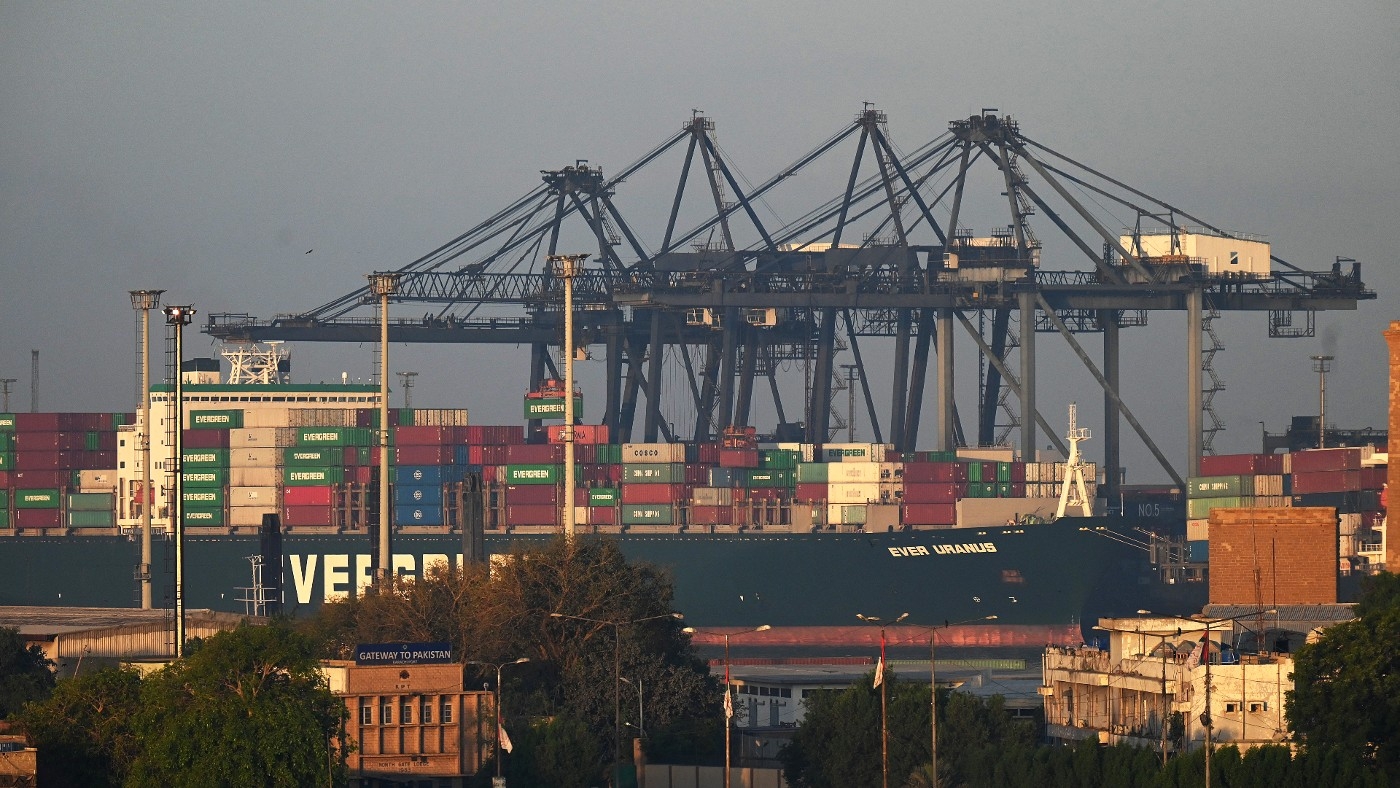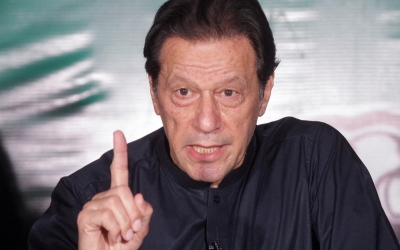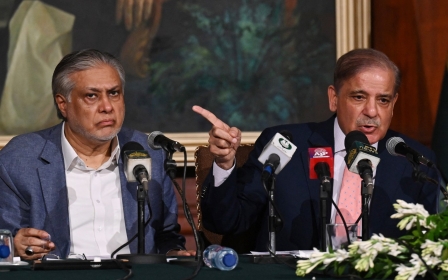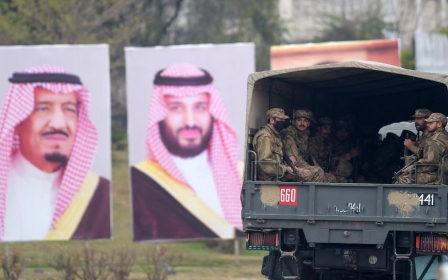Pakistan for sale as the UAE and Qatar make their moves

On Wednesday, in a desperate bid to attract Gulf investment, Pakistan announced that it was in negotiations with the United Arab Emirates to finalise a deal for the construction of a new, multipurpose cargo terminal.
If it goes through, the agreement will give Dubai 85 percent control of a major quay at Karachi’s port.
This week’s announcement follows last month's operational outsourcing deal, which saw Pakistan lease a significant chunk of its oldest and busiest port, in its largest city, to the Abu Dhabi Port Group for 25 years.
According to the deal, the AD Group will operate three berths at the port of Karachi and will invest in infrastructure to allow for bigger ships to dock, extending the quay and increasing the container storage area. The Pakistani government will receive $50m for equipment and infrastructure and $18 per container in handling charges.
Pakistan's top economics correspondent, Shahbaz Rana, told Middle East Eye there was a definite sense of desperation about the deal, and that it cuts some essential corners.
New MEE newsletter: Jerusalem Dispatch
Sign up to get the latest insights and analysis on Israel-Palestine, alongside Turkey Unpacked and other MEE newsletters
“It's definitely not the best-negotiated deal… the government could have priced it better. No independent consultant was called to check the pricing, which is a legal requirement,” Rana said.
“The deal is more to appease the UAE to help with future loans for Pakistan.”
Umar Karim, associate fellow at the King Faisal Center for Research and Islamic Studies, told MEE the deal fits in well with Abu Dhabi's regional strategy.
“While the Pakistanis are desperate for foreign investment, this deal fits well with Abu Dhabi's overall statecraft of acquiring strategic ports and logistic facilities across the region,” he said.
'This deal fits well with Abu Dhabi's overall statecraft of acquiring strategic ports and logistic facilities across the region'
– Umar Karim, King Faisal Center for Research and Islamic Studies
“Karachi's strategic position at the mouth of the Arabian Sea allows it to handle all of Pakistan's maritime trade, and it is thus a prized asset. This lease deal will give the UAE considerable clout in Pakistan's trade environment,” Karim added.
But nearly nine months ago, in a bid to stem the outflow of foreign exchange, the Pakistani government stopped almost all imports, a move which has heavily affected cargo shipping and handling at Karachi port and is likely to impact the port's profitability.
The UAE remains Pakistan's biggest trade partner in the Gulf Cooperation Council, and Karim said that in Islamabad there is real hope of further Emirati investment in the country.
“UAE's Etisalat has already acquired a reasonable percentage of Pakistan's main telecommunications company, PTCL, and there are murmurs in Islamabad that Etisalat might buy an outgoing mobile phone service provider,” Karim said.
The rumours are that Etisalat, which is based in Abu Dhabi, is considering the acquisition of Telenor, Pakistan’s second largest mobile operator.
However, Pakistan is also hoping that the telecom giant will pay the remaining $800m it owes from its acquisition of a 26 percent stake of PTCL in 2005.
Airports for Qatar
Despite the latest IMF bailout of $1.2bn and an additional cash injection of $3bn from Saudi Arabia and the UAE, Pakistan needs a consistent supply of US dollars to service its debts, which currently stand at nearly $80bn, to be repaid over the next three years.
Khaqan Najeeb, an adviser to three former Pakistani finance ministers, told Middle East Eye that Qatar has been in discussion with the Pakistani government to take over the operations of Karachi, Lahore and Islamabad airports since 2018.
“But Karachi and Lahore airports might be a difficult sell, as previous governments have issued sukuk [sharia compliant] investment bonds against them, while the Islamabad airport doesn't have enough traffic to make it profitable,” Najeeb said.
Karim said there are signs that Islamabad is preparing assets for sale, such as the national airline PIA, steel manufacturing plants and energy production companies. But there's a hiccup.
“It will be interesting to see what the modalities of sale are, as these are basically sick units which gave successive governments political mileage to appease their supporters through jobs in these organisations,” Karim said.
There's also little political will to sell these assets, the analyst said, “as new buyers won't tolerate overstaffing and may actually go for significant downsizing”.
Calls to privatise
Pakistan's debts and the demands of the global economic order mean that calls to privatise state-owned entities are never far away.
Najeeb, the former government financial adviser, said that leasing berths and airport operations are small-ticket items and not the answer to Pakistan's debt problem. The government, he said, needs to properly privatise.
“Pakistan's public sector has a vast footprint of 168 commercial state-owned enterprises, spanning energy, aviation, railways, logistics, communication, manufacturing, finance, mining and engineering, wholesale, retail and marketing sectors,” Najeeb told MEE.
He argues that divesting these assets would “ease the dollar liquidity crunch faced by Pakistan, also signalling to the world that Pakistan is thinking beyond debt-creating instruments”.
This is the kind of approach the IMF has often foisted upon governments in similar situations.
Pakistan needs, Najeeb said, to “revamp its board of investment”, bringing in “specialist human resources and incentives” in order to take advantage of this opening.
Middle East Eye delivers independent and unrivalled coverage and analysis of the Middle East, North Africa and beyond. To learn more about republishing this content and the associated fees, please fill out this form. More about MEE can be found here.





